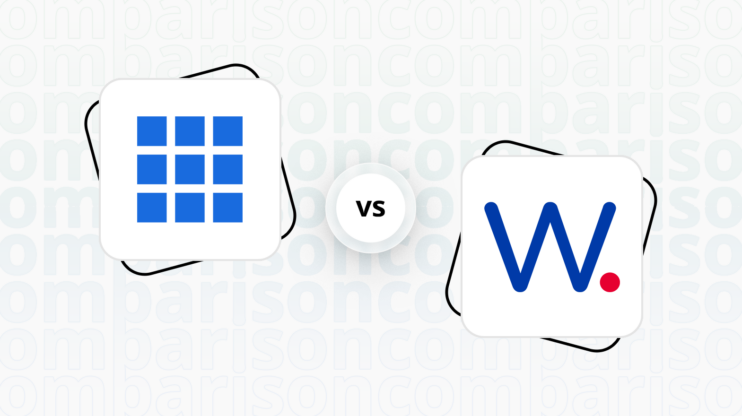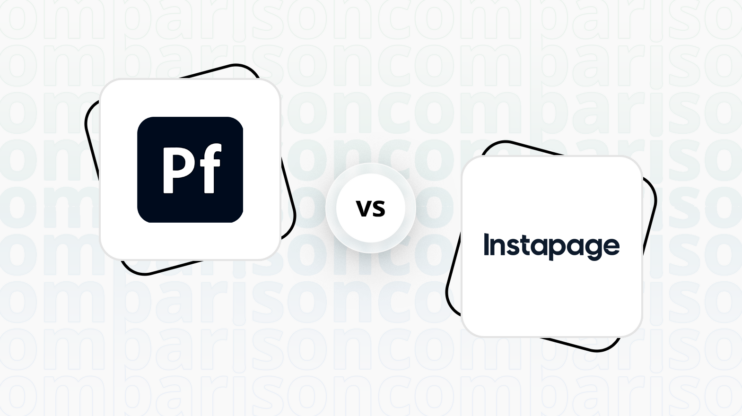iPage vs Voog: Final verdict
iPage vs Voog presents a comparison between two versatile website builders, each with its own strengths and target audience.
-
iPage (Overall Grade: 6.1/10)
is a user-friendly platform that combines web hosting and site building, making it a solid choice for small businesses and personal projects. It offers a range of templates and a drag-and-drop builder, along with comprehensive services like domain registration and e-commerce solutions. However, it falls short in areas like advanced customization and scalability for larger enterprises. When considering iPage vs Voog, iPage is ideal for users seeking an all-in-one solution with straightforward features and affordable pricing. -
Voog (Overall Grade: 6.7/10)
excels with its intuitive drag-and-drop interface and strong focus on design and multilingual support. It is particularly well-suited for international businesses and users looking to create professional-looking websites without coding. Voog offers a range of customizable templates, SEO tools, and responsive design options, making it a versatile choice for both beginners and experienced web developers. In the iPage vs Voog comparison, Voog stands out for its ease of use, design flexibility, and robust multilingual capabilities.

|

|
|
|---|---|---|
|
Design functionalities & templates |
7.0 |
7.4 |
|
Ease of use |
7.6 |
8.1 |
|
Ecommerce |
5.7 |
6.9 |
|
Website editors |
6.8 |
7.6 |
|
Product testing options |
2.5 |
8.6 |
|
Price |
7.3 |
7.5 |
|
Hosting quality |
7.7 |
7.7 |
|
Website speed optimization |
7.4 |
6.2 |
|
Plugins and integrations |
6.3 |
6.7 |
|
Marketing features |
7.2 |
6.9 |
|
Customer support |
6.9 |
6.1 |
|
Security |
7.5 |
7.7 |
|
AI capabilities |
3.0 |
0 |
|
User Management |
3.2 |
7.3 |
Which one is the best for ecommerce: iPage or Voog?
 5.7
5.7
 6.9
6.9
Verdict
: Voog is better suited for ecommerce due to its higher score and more advanced features, while iPage is more basic but still functional for smaller stores.
-
iPage
: iPage offers a user-friendly platform with essential ecommerce features like inventory management, coupon codes, and PayPal integration. It is ideal for small businesses and personal projects that need a straightforward solution. However, when comparing iPage vs Voog, iPage’s ecommerce capabilities are more limited, making it less suitable for larger or more complex online stores. -
Voog
: Voog excels with its advanced ecommerce features, including global shipping, product variants, and multiple payment gateways. It is particularly strong in multilingual support, making it a great choice for international businesses. Voog’s higher score reflects its more comprehensive ecommerce functionalities, making it a better option for those looking to scale their online presence.
Which one is the best for informational and business websites?
 7.2
7.2
 7.5
7.5
Verdict
: Voog slightly edges out iPage for informational and business websites, thanks to its intuitive design and multilingual support, making it ideal for international audiences.
-
iPage
: iPage is a user-friendly web hosting and site builder platform that offers a variety of templates and a drag-and-drop builder, making it accessible for users without technical expertise. It provides comprehensive services, including hosting, domain registration, and e-commerce solutions, targeting small businesses and personal projects. However, it may not offer the same level of design flexibility and multilingual support as Voog. -
Voog
: Voog is a versatile website builder designed for simplicity and design, offering an intuitive drag-and-drop interface and strong multilingual support. This makes it an excellent choice for international businesses and personal sites aiming for a global audience. Voog’s range of customizable templates, SEO tools, and responsive design options ensure that websites look great on all devices. When comparing iPage vs Voog, Voog’s user-friendly interface and multilingual capabilities make it a standout choice for informational and business websites.
iPage vs Voog: Detailed comparison
Design functionalities & templates
Design FunctionalitiesRepresents how well each platform allows for creative design and customization of websites.Score Components:
- Template Variety (30%): Range and quality of design templates.
- Customization (30%): Flexibility and options for design alterations.
- User Interface (20%): Ease and intuitiveness of the design process.
- Responsiveness (10%): Adaptability to different devices and screen sizes.
- Innovation (10%): Unique design features and tools.
 7.0
7.0
 7.4
7.4
🏆
Winner: Voog.
Voog edges out iPage with a slightly higher score, offering a more intuitive drag-and-drop interface and robust customization flexibility.
iPage offers a wide variety of templates and designs, catering to users with diverse needs and preferences. With hundreds of options available, users can easily find a template that suits their specific project or business requirements. These templates are also customizable, allowing for a high degree of personalization.
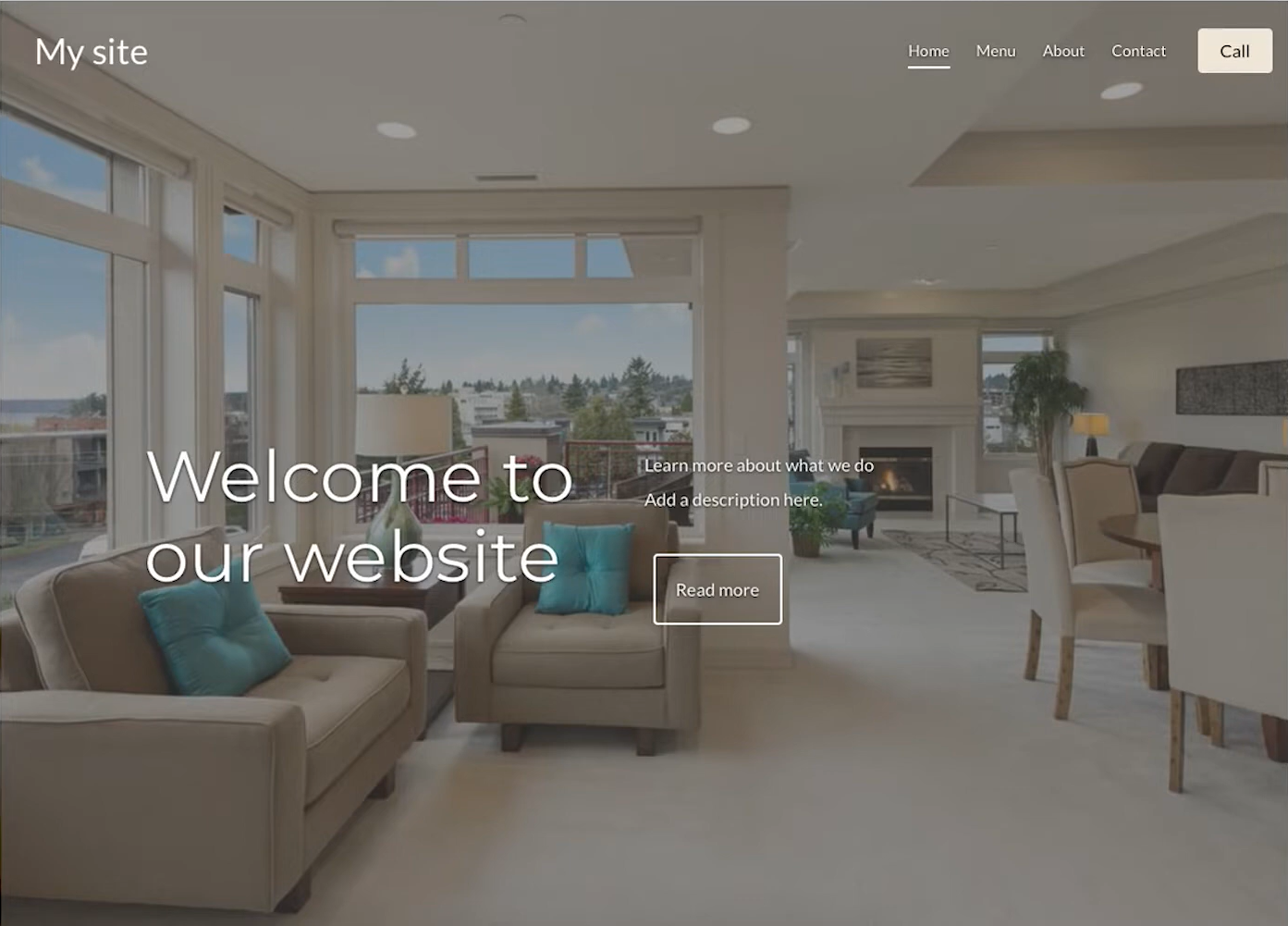
On the other hand, Voog offers a diverse range of design templates across various categories tailored for different website types such as business services, online stores, blogs, and more. The platform highlights specific templates for creating visually appealing and functional webstores and blogs, emphasizing user-friendly design and mobile responsiveness.
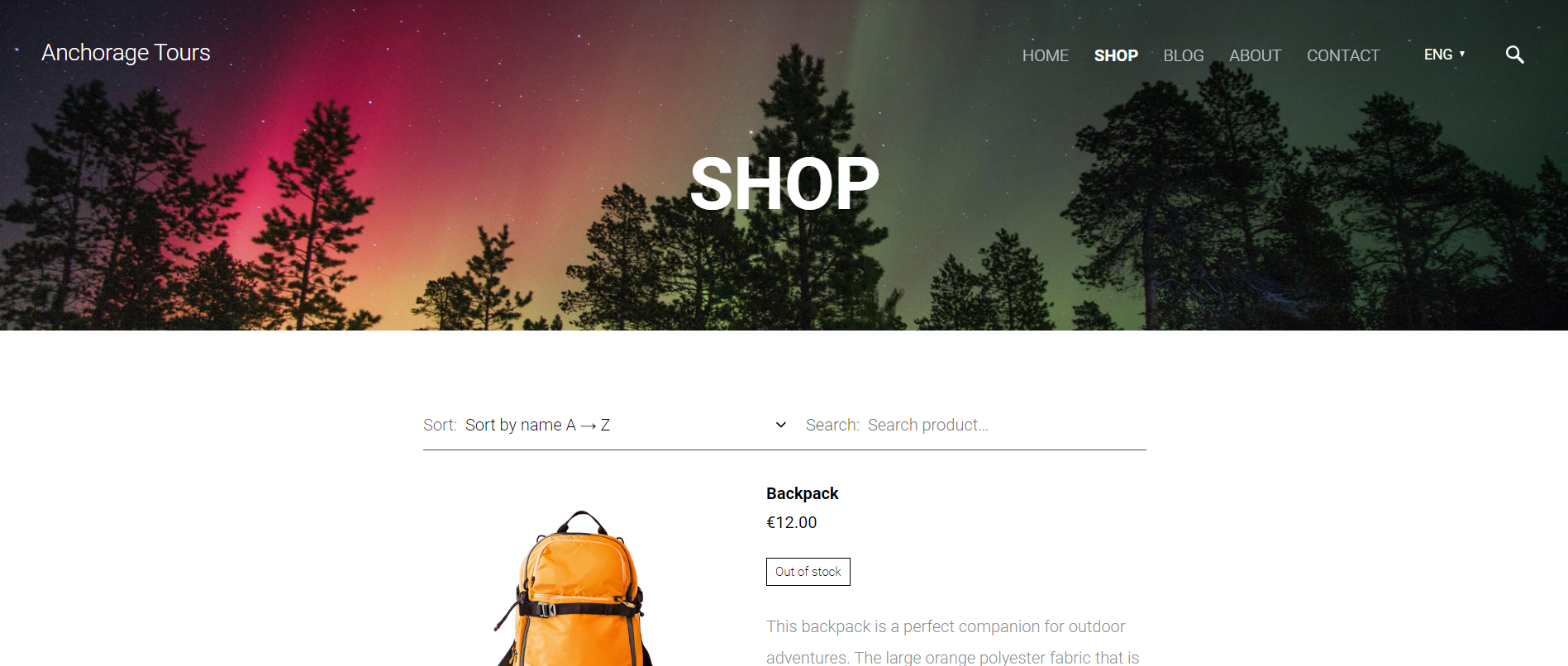
Get a head start on website creation with AI
Create a custom website tailored to your business needs 10X faster with 10Web AI Website Builder!
Ease of use
Ease of useReflects the platform’s overall user-friendliness.Score
Components:
- Learning curve (40%): Quickness and ease of getting started.
- Interface design (30%): Simplicity and intuitiveness of layout.
- User guidance (20%): Quality of tutorials and support.
- Flexibility (10%): Adaptability to various user skills.
 7.6
7.6
 8.1
8.1
🏆 Winner: Voog
. With a score of 8.1, Voog edges out iPage (7.6) in terms of ease of use. Voog’s user-friendly interface and simplicity make it an excellent choice for individuals and small businesses looking to create and manage their websites without requiring extensive technical knowledge. iPage, while also user-friendly, offers a more limited range of design options compared to more advanced website builders.
Learning Resources
🏆 Winner: Voog
. Both platforms offer solid learning resources, but Voog provides extensive learning resources tailored to a broad audience, from beginners to advanced users, ensuring an effective and enjoyable website-building experience. iPage also offers a variety of learning resources, but the availability of direct, personalized support might vary, depending on the plan a user subscribes to.
For ecommerce
EcommerceMeasures the platform’s effectiveness in supporting online business activities.Score Components:
- Ecommerce themes and templates (20%): Variety and design of templates.
- Product management (25%): Ease of managing and organizing products.
- Payment options (25%): Variety and convenience of payment methods.
- Ecommerce features (20%): Features for managing an ecommerce store.
- Integration (10%): Compatibility with external e-commerce tools and services.
 5.7
5.7
 6.9
6.9
iPage and Voog both offer ecommerce features suitable for small to medium-sized businesses. However, they might not scale well for very large enterprises or those with highly complex ecommerce needs. Their features are more tailored to simpler online store setups, and some users may find the customization options for ecommerce functionalities somewhat limited compared to specialized ecommerce platforms.

|

|
|
|---|---|---|
|
Ecommerce themes and templates |
5.5 |
6.5 |
|
Product page customization |
5.0 |
6.8 |
|
Payment processing and commissions |
6.0 |
7.0 |
|
POS capabilities |
3.0 |
5.0 |
|
Payment gateways |
6.5 |
7.5 |
|
Product numbers |
4.0 |
5.5 |
|
Additional ecommerce features |
5.5 |
6.0 |
iPage ecommerce features:
- Inventory Management and Tracking
- Coupon Codes and Promotions
- SEO Tools
- PayPal Integration
Voog ecommerce features:
- Order management
- Global shipping
- Product variants
- Payment gateways integration
Ecommerce themes & templates
iPage offers a variety of ecommerce-specific templates designed to cater to online stores and businesses. These templates are integrated with features such as shopping carts, product catalogs, and payment processing options to facilitate online transactions. However, the exact number of ecommerce templates available can vary, and users might find some limitations in terms of customization and advanced ecommerce functionalities compared to specialized ecommerce platforms.
On the other hand, Voog highlights around 18 templates optimized for building online stores. These templates are praised for their attractive landing pages, spacious backgrounds for product images, and structured product and product list layouts, which aim to create a user-friendly browsing experience similar to visiting a physical store.
Product page customization
iPage’s website builder offers a range of ecommerce product page customization options, allowing users to design their storefronts with various templates, adjust layouts, and incorporate multimedia elements like images and videos to showcase products. Users can also edit product descriptions, manage inventory, and set up different payment options. However, limitations may include less flexibility in advanced customization or coding for those who require unique, highly tailored functionalities beyond the provided templates and settings.
Voog website builder provides functionality for customization of product pages within an online store. It enables the modification of various product aspects such as names, descriptions, categories, visibility status, and URL slugs. The system also allows for the inclusion of multiple images per product, and offers settings for net and sale prices, VAT rates, and inventory tracking. Voog facilitates the creation of product variants, like different colors or sizes, and allows for the adjustment of stock levels and variant visibility.
Payment processing
iPage supports several payment options for eCommerce, including major gateways like PayPal, Stripe, and others, catering to a wide range of currencies and countries. iPage does not charge commissions for transactions, commissions are charged by the gateways themselves. While iPage offers flexibility in online payment processing, it does not explicitly mention integrated POS capabilities for in-person transactions.
Voog supports a variety of payment gateways to accommodate diverse online transaction needs. Supported gateways include Swedbank Payment Gateway, Bank links through MakeCommerce (Nordics and Baltics), Montonio, Stripe, PayPal, EveryPay (for card payments and payment initiation), and Luminor Payment Gateway. These options offer flexibility in payment methods, catering to users in different regions and with different banking preferences. Voog also details its transaction fees, including a 3% fee for standard sales, while premium plan subscribers enjoy the benefit of no transaction fees.
Website Editors
Website EditorsEvaluates the platforms’ website building and editing capabilities.Score Components:
- Customization tools (40%): Range and power of editing features.
- Editor usability (30%): User experience within the editor.
- Design flexibility (20%): Freedom in layout and design changes.
- Update and maintenance ease (10%): Simplicity of updating and maintaining the site.
 6.8
6.8
 7.6
7.6
🏆
Winner: Voog
. Voog, with a score of 7.6, offers a user-friendly website editor that caters to both novices and developers with its range of templates, drag-and-drop customization, and multilingual capabilities. It provides comprehensive features for creating online stores, blogs, and customizable websites, alongside SEO and analytic tools.
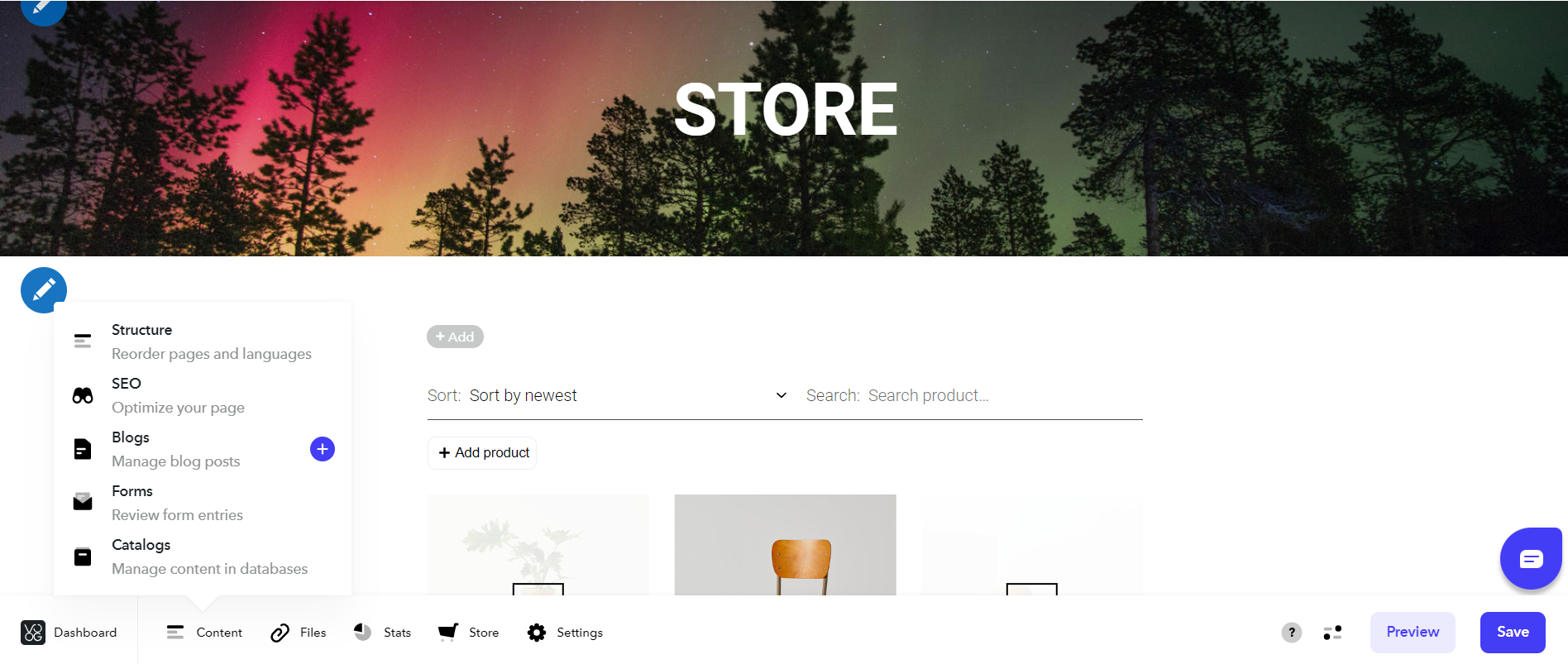
iPage’s website builder editor, scoring 6.8, is designed for ease of use, catering to both beginners and those with some web design experience. It offers a drag-and-drop interface, allowing users to easily add, remove, and customize elements on their web pages without needing to code.
Mobile editor/app
 5.0
5.0
 5.5
5.5
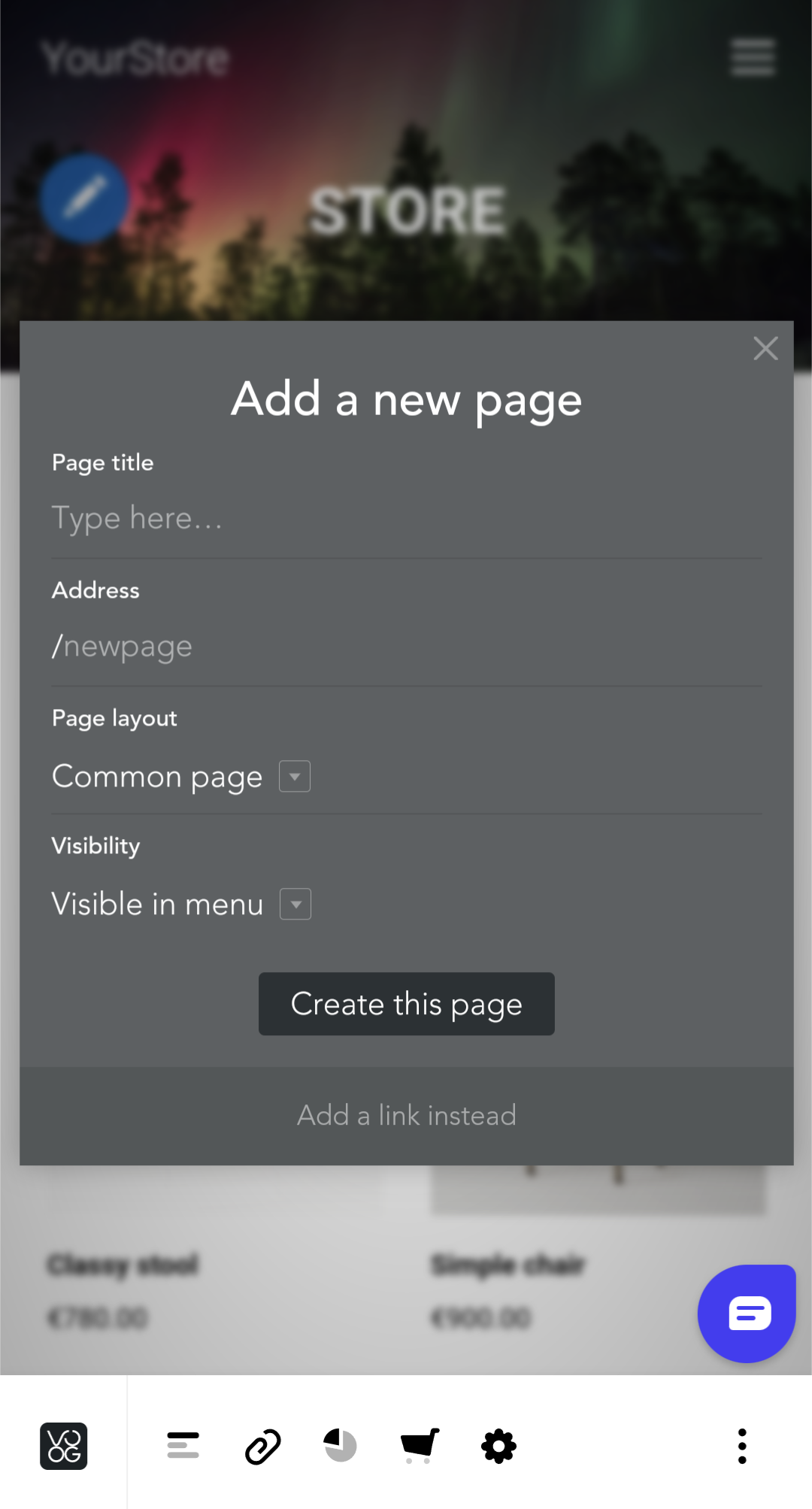
🏆
Winner: Voog
. Both iPage and Voog do not have a dedicated mobile editor app, but they allow users to edit their websites using the mobile browser version of the editor. However, Voog has a slightly higher mobile editor score than iPage, indicating that it provides a better mobile editing experience.
iPage’s mobile editing capabilities are somewhat limited, which may restrict the level of customization and functionality that users can achieve when editing their websites on a mobile device.
On the other hand, Voog’s mobile browser version of the editor allows users to manage and edit their websites with relative ease, making it a more convenient option for users who need to make quick changes to their websites on the go.
Product testing options
Product Testing OptionsAssesses the options for trying out platform features before commitment.Score Components:
- Trial quality (40%): Extent and usefulness of the trial or free version.
- Feature accessibility (30%): How many features are available to test.
- Trial duration (20%): Length of the trial period.
- Ease of transition (10%): Smoothness of moving from trial to paid plans.
 2.5
2.5
 8.6
8.6
Overall Result
:
Voog Wins
. Voog scores 8.6 in product testing options, significantly higher than iPage’s 2.5. Voog offers a 30-day free trial, during which users can test all premium features. iPage, on the other hand, does not offer a free trial, but allows users to test all features during a 30-day refundable period.

|

|
|
|---|---|---|
|
Free Plan |
No | No |
|
Trial Duration |
No free trial |
30 days |
|
Testing Premium Features |
During 30-day refundable period |
During free trial |
|
Money Back Guarantee |
30-day money back guarantee |
No |
Price
PriceLooks at the cost-effectiveness and value for money of each platform.Score Components:
- Plan value (40%): What each pricing tier offers.
- Transparency and clarity (30%): Clearness of pricing structures.
- Flexibility of plans (20%): Range of options to suit different budgets.
- Hidden costs (10%): Additional expenses not included in the plan.
 7.3
7.3
 7.5
7.5
iPage and Voog have similar price scores, indicating that they offer comparable value for money.

|

|
|
|---|---|---|
|
$10-$20 |
Basic ($15.99/month): Simple website or blog, 1 website, 10 GB SSD, free domain, managed WordPress, free SSL for 1st year. Value for price: 6.5 |
Standard (€14/month): Good for simple websites, with unlimited bandwidth, up to 30 website pages, online store with up to 3 products, 3% transaction fees, 5GB file storage, and up to 3 contributors. Value for price: 6.5 |
|
$20-$30 |
Choice Plus ($27.99/month): Multiple sites with storage, security, backups, 3 websites, 40 GB SSD, daily backups, domain privacy, malware scanning. Value for price: 7.5 |
Plus (€22/month): Recommended for most users for more advanced websites, with free custom domain if annual subscription is purchased, unlimited bandwidth, unlimited website pages, online store with unlimited products, 3% transaction fees, 20GB file storage, and unlimited contributors. Value for price: 8.0 |
|
$30-$34 |
Online Store ($32.99/month): Online selling with eCommerce tools, 3 websites, 40 GB SSD, store features like unlimited products and secure payments. Value for price: 8.0 |
No offering at this amount. |
|
$34+ |
Pro ($34.99/month): High traffic sites, advanced storage, 5 websites, 100 GB SSD, optimized for high traffic, enhanced security and backups. Value for price: 9.0 |
Premium (€50/month): Designed for more advanced needs with free custom domain if annual subscription is purchased, unlimited bandwidth, unlimited website pages, online store with unlimited products, no transaction fees, unlimited file storage, and contributors. Value for Price: 9.0 |
location. As a result in rare cases the prices displayed here can differ from the ones you see on their
websites.
Hosting quality
Hosting
qualityExamines the reliability and performance of the hosting solutions.Score Components:
- Uptime (40%): Consistency and reliability of website availability.
- Speed (30%): Loading times and performance.
- Bandwidth and storage (20%): Sufficiency of resources provided.
- Data centers (10%): Quality and distribution of hosting infrastructure.
 7.7
7.7
 7.7
7.7
Winner: Tie
. Both iPage and Voog offer reliable hosting services with a 99.9% uptime. iPage provides a range of hosting services including shared, WordPress, and VPS hosting, with unlimited storage and bandwidth. Voog, on the other hand, offers unlimited bandwidth and storage ranging from 5GB to unlimited, with automated daily backups. However, Voog has an uptime guarantee, while iPage does not.

|

|
|
|---|---|---|
|
Do they offer hosting? |
Yes |
Yes |
|
Data Centers: |
2: US, Europe |
Not disclosed |
|
Type of hosting: |
Managed WordPress Hosting |
Not disclosed |
|
Uptime: |
99.9% |
99.9% |
|
Uptime Guarantee: |
No |
Yes, 99.9% |
Website Speed Optimization
Website Speed OptimizationEvaluates optimization of website loading timesScore Components:
- PageSpeed Score (30%): Google’s score indicating performance optimization.
- Loading Time (30%): The average time until a website is fully interactive.
- Mobile Optimization (15%): Optimization effectiveness for mobile devices.
- Resource Optimization (15%): Optimizing images, scripts, and other heavy resources.
- CDN Usage (10%): Use of CDN to enhance speed across geolocations.
 7.4
7.4
 6.2
6.2
🏆 Winner: iPage
Both iPage and Voog have strategies in place for website speed optimization, but iPage takes the lead with a higher website speed optimization score and more transparent information about their strategies and improvements.

|

|
|
|---|---|---|
|
Focus |
Web Server optimizations, Caching, CDN, Database optimization, SEO optimization |
Mobile Responsive design, Caching, Image Optimization, Code minification |
|
Performance Tools |
Google Lighthouse, PageSpeed Insights |
Google PageSpeed Insights Integration |
|
Key Strategies |
Web Server optimizations, Caching, CDN, Database optimization, SEO optimization |
Mobile Responsive design, Caching, Image Optimization, Code minification |
|
Load Times |
2.6s average |
Varies depending on optimization and website complexity |
|
Page Speed Scores Range |
72/100 average |
Varies depending on optimization and website complexity |
|
Core Web Vitals Improvement |
LCP, FID, CLS improvements |
Not disclosed |
iPage, a user-friendly web hosting and site builder platform, offers a range of strategies for website speed optimization, including web server optimizations, caching, CDN, database optimization, and SEO optimization. With an average load time of 2.6 seconds and an average PageSpeed score of 72/100, iPage shows a strong commitment to improving website speed. They also focus on improving Core Web Vitals, specifically LCP, FID, and CLS.
On the other hand, Voog, a versatile website builder, also has strategies in place for website speed optimization, including mobile responsive design, caching, image optimization, and code minification. However, their load times and PageSpeed scores vary depending on optimization and website complexity, and they do not disclose any information on their Core Web Vitals improvements. This lack of transparency gives iPage the edge in this comparison.
Get a head start on website creation with AI
Create a custom website tailored to your business needs 10X faster with 10Web AI Website Builder!
Plugins and integrations
Plugins and integrationsMeasures the range and effectiveness of additional plugins and integrations.Score Components:
- Variety of options (40%): Range of available add-ons.
- Integration smoothness (30%): Ease of integrating plugins into the site.
- Quality of plugins (20%): Functionality and reliability of the options.
- Custom integration capabilities (10%): Support for custom or third-party integrations.
 6.3
6.3
 6.7
6.7
🏆 Winner: Voog.
With a score of 6.7, Voog edges out iPage (6.3) in the plugins and integrations category. Voog offers a wide range of integrations to enhance your web presence, including finance, social media, utilities, and shipping. iPage also offers a variety of plugins and extensions, but Voog’s integrations seem to provide a more versatile tool for online presence management.
However, the choice between the two may depend on your specific needs and budget, as both offer a range of pricing options for their plugins and extensions.
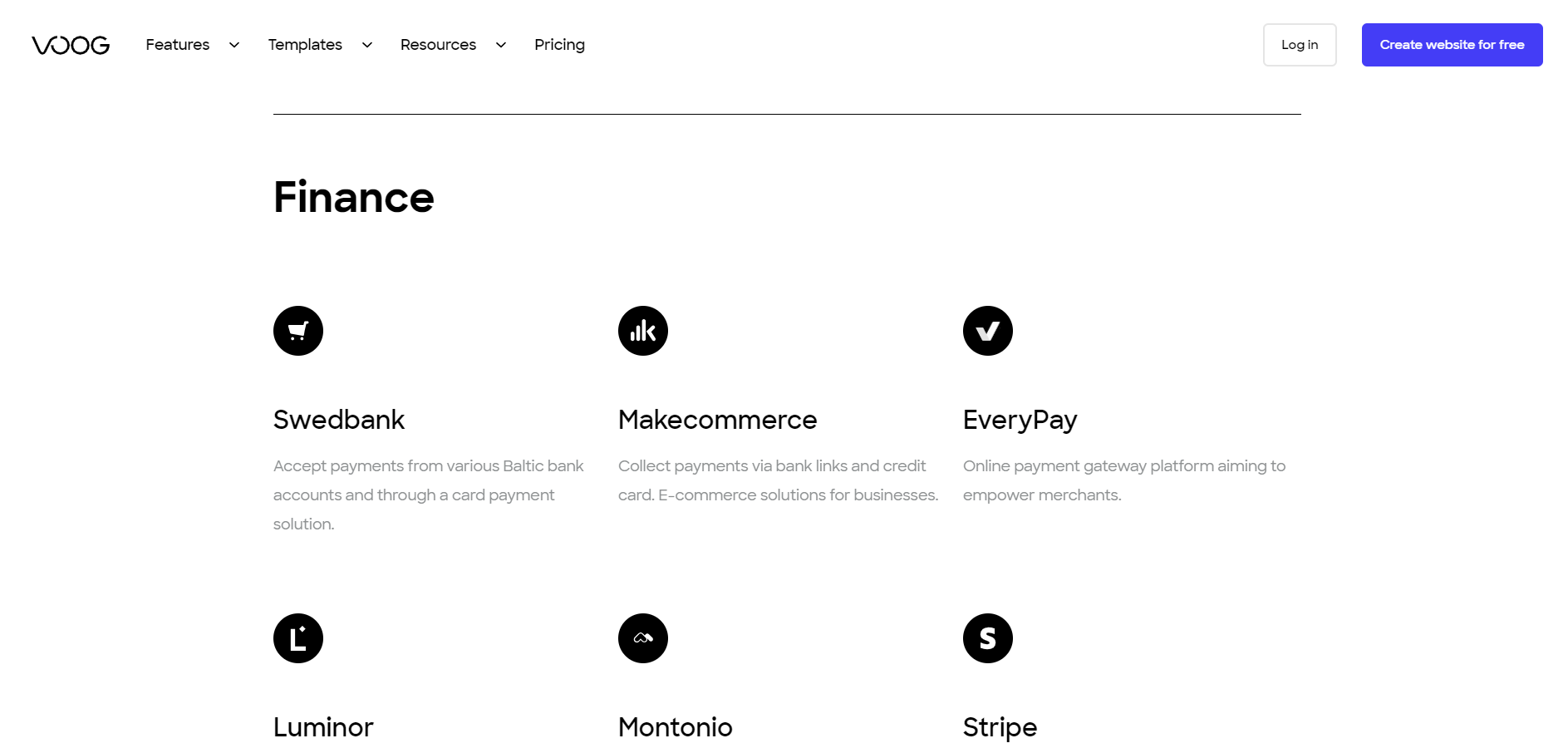
Marketing Features
Design FunctionalitiesRepresents how well each platform allows for creative design and customization of websites.Score Components:
- Template Variety (30%): Range and quality of design templates.
- Customization (30%): Flexibility and options for design alterations.
- User Interface (20%): Ease and intuitiveness of the design process.
- Responsiveness (10%): Adaptability to different devices and screen sizes.
- Innovation (10%): Unique design features and tools.
 7.2
7.2
 6.9
6.9
🏆
Overall Winner: iPage
. iPage edges out Voog with a slightly higher score and a more comprehensive suite of marketing tools. While both offer similar features, iPage provides more robust tools for email marketing and analytics.

|

|
|
|---|---|---|
|
SEO Tools |
|
|
|
Email Marketing |
|
✓ (through third-party integrations) |
|
Blogging |
|
|
|
Social Media Integration |
Integrated social media buttons and features |
Easy linking and social post creation |
|
Analytics and Reporting |
Option to integrate Google Analytics for comprehensive analytics |
Basic analytics tools and Google Analytics integration |
|
Ads and Promotions |
Offers SEO, social media integration, email marketing, and promotional discounts |
Yes, through integration of third-party services |
Customer Support
Customer supportEvaluates the quality and availability of support options.Score Components:
- Response time (40%): Speed of support responses.
- Support quality (30%): Effectiveness and helpfulness of the support.
- Availability (20%): Range of support channels (phone, chat, email).
- Resource richness (10%): Quality of self-help and educational materials.
 6.9
6.9
 6.1
6.1
🏆 Winner: iPage
. In the iPage vs Voog comparison, iPage takes the lead in customer support with a score of 6.9. iPage offers 24/7 customer support through phone, email, and live chat, ensuring that users can get assistance at any time. This round-the-clock availability is a significant advantage for users who may need help outside of regular business hours.
Voog, on the other hand, provides customer support 7 days a week via email. While Voog’s support is reliable and supplemented by a range of support guides, it lacks the immediacy of live chat and phone support that iPage offers. This makes iPage a more robust option for users who prioritize accessible and immediate customer support.
Security
SecurityLooks at the platforms’ security measures and data protection.Score Components:
- Data protection (40%): Safeguards for user and customer data.
- SSL and encryption (30%): Implementation of secure connections.
- Compliance (20%): Adherence to industry security standards.
- Regular updates (10%): Frequency of security updates and patches.
 7.5
7.5
 7.7
7.7
🏆
Winner: Voog
. Voog edges out iPage with a slightly higher security score and a comprehensive approach to data protection and website security. Voog’s commitment to data privacy is evident in its detailed privacy policy, which outlines the types of data collected, the purposes for processing, and the rights of individuals regarding their personal data. In terms of website security, Voog provides SSL encryption and manages technical aspects such as hosting, security updates, and backups on behalf of the user.
Although it may not offer the same level of specialized ecommerce security features as Voog, iPage is committed to maintaining a secure platform for all types of websites. This includes Domain Privacy Protection and SiteLock, a comprehensive security suite designed to protect websites from malware, spam, and hackers. However, it falls slightly short of Voog in terms of overall security score.
AI Capabilities
AI capabilitiesMeasures the effectiveness of AI-driven features and tools.Score Components:
- Automation efficiency (40%): Impact of AI on streamlining processes.
- Personalization (30%): AI-driven customization for users or customers.
- AI-Assisted design (20%): Role of AI in website design and functionality.
- Data analysis (10%): Use of AI in interpreting user data and analytics.
 3.0
3.0
 0
0

|

|
|
|---|---|---|
|
AI-Powered Builder |
iPage offers an AI-powered website builder |
|
|
AI Ecommerce Features |
|
|
|
AI Content Generation |
|
|
|
Additional AI Features |
iPage’s AI assists in efficient website setup |
|
🏆 Winner: iPage
. iPage, with a score of 3.0, offers a basic AI-powered website builder that assists users in setting up their websites efficiently. However, it lacks AI content generation tools and AI-powered ecommerce features.
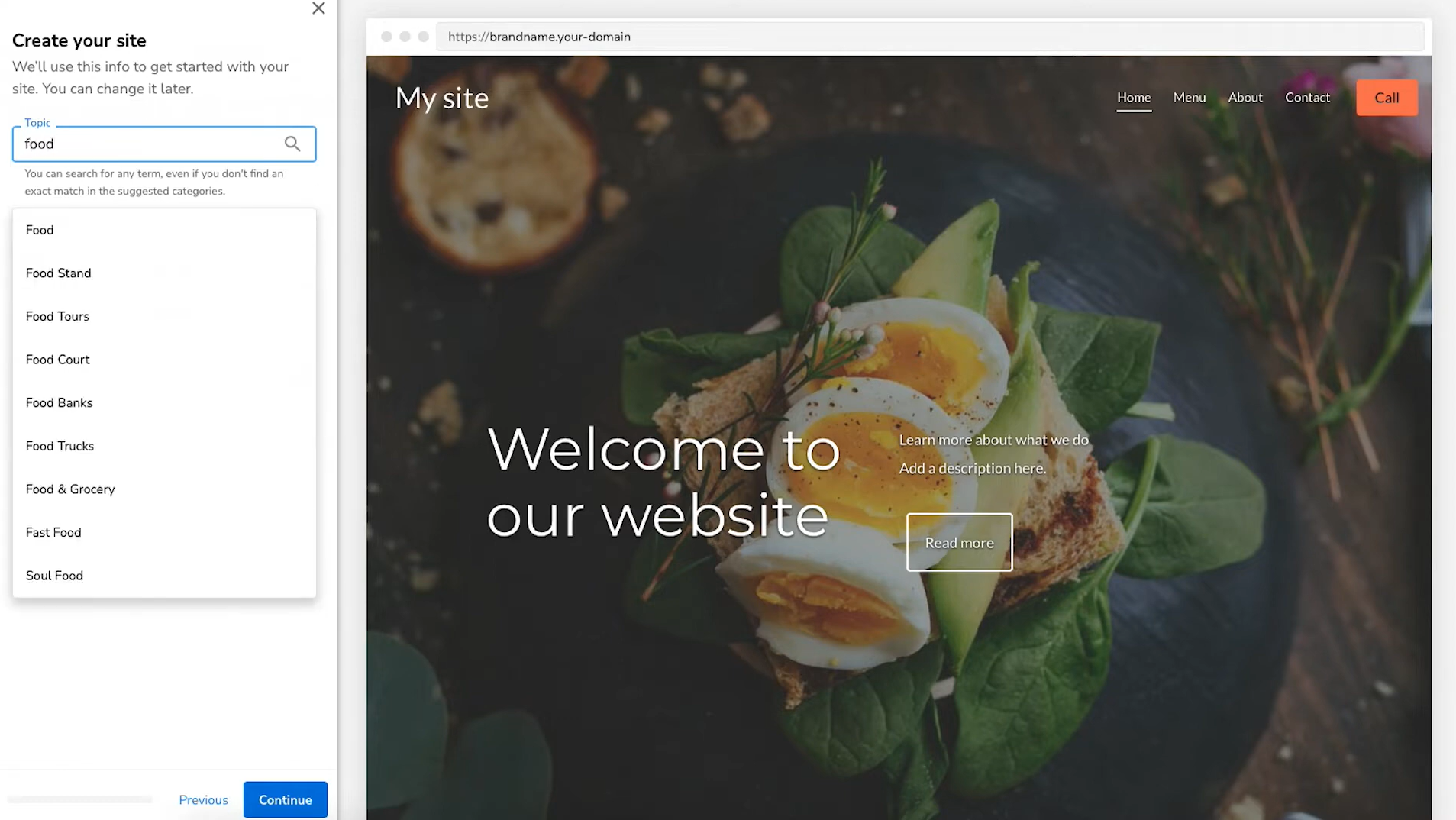
Voog, on the other hand, does not have any AI capabilities, scoring 0 in this category. It does not offer an AI-powered builder, AI ecommerce features, AI content generation, or any additional AI features.
User Management
User ManagementAssesses the platforms’ capabilities in managing user roles, permissions, and accessibility.Score Components:
- Role Customization (40%): Flexibility in creating and defining user roles and
permissions. - Ease of Management (30%): User interface and tools for managing users.
- Access Control (20%): Effectiveness of access control measures for different user
levels. - Scalability (10%): Ability to manage a growing number of users efficiently.
 3.2
3.2
 7.3
7.3
🏆 Winner: Voog
. iPage and Voog offer different levels of user management capabilities.
- iPage’s website builder offers very limited multi-user functionality and access levels compared to more sophisticated website builder platforms.
- The number of contributors who can manage and edit a website built with Voog varies based on the plan you choose. For the Standard plan, up to 3 contributors can be added. If you choose the Plus or Premium plans, there’s no limit to the number of contributors you can have. This flexibility allows for both small teams and larger organizations to effectively manage their online presence using Voog.
Voog User Roles and Access Levels:
| Role | Description | Access Highlights |
|---|---|---|
| Admin | Admins, also known as owners, have full control over the website. They can manage all aspects of the site without any restrictions. | Full site management, including key account settings like subscription info. |
| Editor | Editors can manage certain aspects of the site, but they do not have access to key account settings. Their role is more focused on content management. | Limited to certain site settings; cannot manage subscription or account settings. |
Additional Features

|

|
|
|---|---|---|
|
SSL Certificate |
|
|
|
Custom Domain |
|
|
|
Free Custom Domain Included |
|
|
|
International Domains |
|
|
|
Mobile Responsive |
|
|
|
Page Speed |
|
|
|
Website Builder Mobile App |
|
|
|
Convert a Website To An App |
|
|
|
Website Analytics |
|
|
|
Multilingual Sites |
|
|
|
Multiple Users |
|
|
iPage vs Voog: User Feedback
iPage, while not available on the G2 platform, is known for its user-friendly web hosting and site builder services. It offers a range of templates and a drag-and-drop builder, making it accessible for users without technical expertise. The platform’s recent partnership with Bluehost aims to enhance its hosting capabilities and pricing plans, targeting small businesses and personal projects.
Voog, on the other hand, has received positive feedback on G2 with a rating of 4.5/5 from 2 reviews. Users appreciate its ease of use and the ability to create multilingual websites, which is particularly beneficial for international businesses. However, some users have expressed a desire for a more diverse selection of stock photos. Overall, Voog is praised for its intuitive interface and problem-solving capabilities, making it a strong contender in the iPage vs Voog comparison.
The making of this blog
We followed a clear, step-by-step process to write and research this article.
iPage vs Voog: FAQ
Which platform is better for beginners, iPage or Voog?
Can I use both iPage and Voog for creating a multilingual website?
How do iPage and Voog compare in terms of ecommerce capabilities?
Which platform offers better customer support, iPage or Voog?
Are iPage and Voog suitable for users with no technical background?
Which platform is more affordable, iPage or Voog?
Can I test Voog before making a purchase?
Which platform is better for hosting quality and reliability?
Do iPage and Voog offer AI capabilities?
Which platform is recommended for creating an online store with a global reach?










